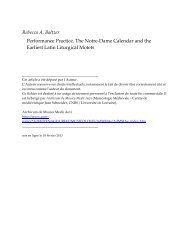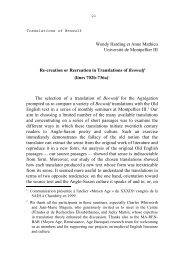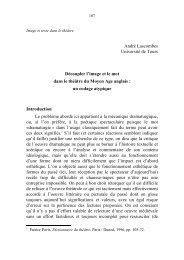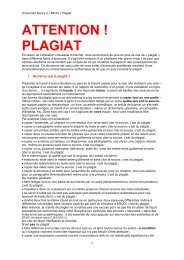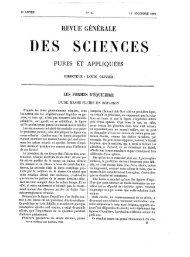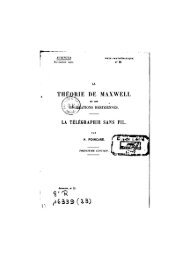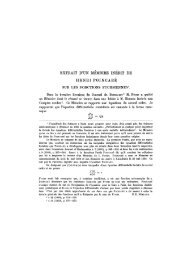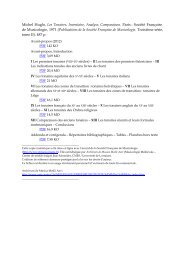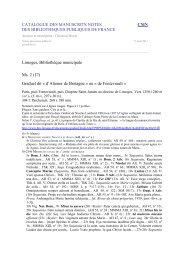Create successful ePaper yourself
Turn your PDF publications into a flip-book with our unique Google optimized e-Paper software.
158_(12U<br />
And he had been somtyme in chevauchie. (l. 85)<br />
Maria K. Greenwood<br />
Heroic legend veers rather disappointingly into mere romance<br />
when, by the end of the sentence, we learn that the outcome of the<br />
Squire's soldiering is not to win honour but ladies' favours. The<br />
Narrator, realising that the son is not interested in living up to his<br />
father's professedly heroic ideas of chivalry, and that his campaigns in<br />
Flanders and Picardy sound rather unexcitingly unexotic, returns again<br />
to appraising his appearance:<br />
Embroidered was he [...] (l. 89)<br />
The further information that the young man then gives on his lifestyle<br />
and on his reputation, his singing, his fluting, his Maytime<br />
freshness, seems to be going along with the remark about his<br />
"embroidered" appearance, as if he were enthusiastically agreeing that<br />
he is indeed the perfect Courtly Lover in person. The next remark on<br />
his clothes (about the shortness of his gown and length of his sleeves)<br />
is more laconic and may come from the Narrator or the young man<br />
himself, depending on the amount of approval this information is<br />
meant to arouse. The comment that follows on the Squire's<br />
horsemanship is more clearly approbatory:<br />
Well koude he sitte on horse and faire ryde (l. 94)<br />
but unclear as to who of the two, Narrator or Squire, is at its origin.<br />
Perhaps the Narrator is a capable judge of riding skills, perhaps not:<br />
whereas the Squire is likely to be capable of telling good<br />
horsemanship from bad. In the next lines, however there is no<br />
ambiguity about who gives the information:<br />
He could songes make and wel endite<br />
Juste and eke daunce [...] (l. 95-96)<br />
for now, with the the Squire speaking of his accomplishments, we are<br />
clearly in the Past tense of Free Indirect Speech, as is confirmed by<br />
what follows. The time of his sexual exploits is realistically, not<br />
romantically, rendered by the word by nightertale. Unlike the<br />
conventional lover of romance pining sleeplessly from unfulfilled<br />
romantic longing, the real young man is not shy of boasting that his




